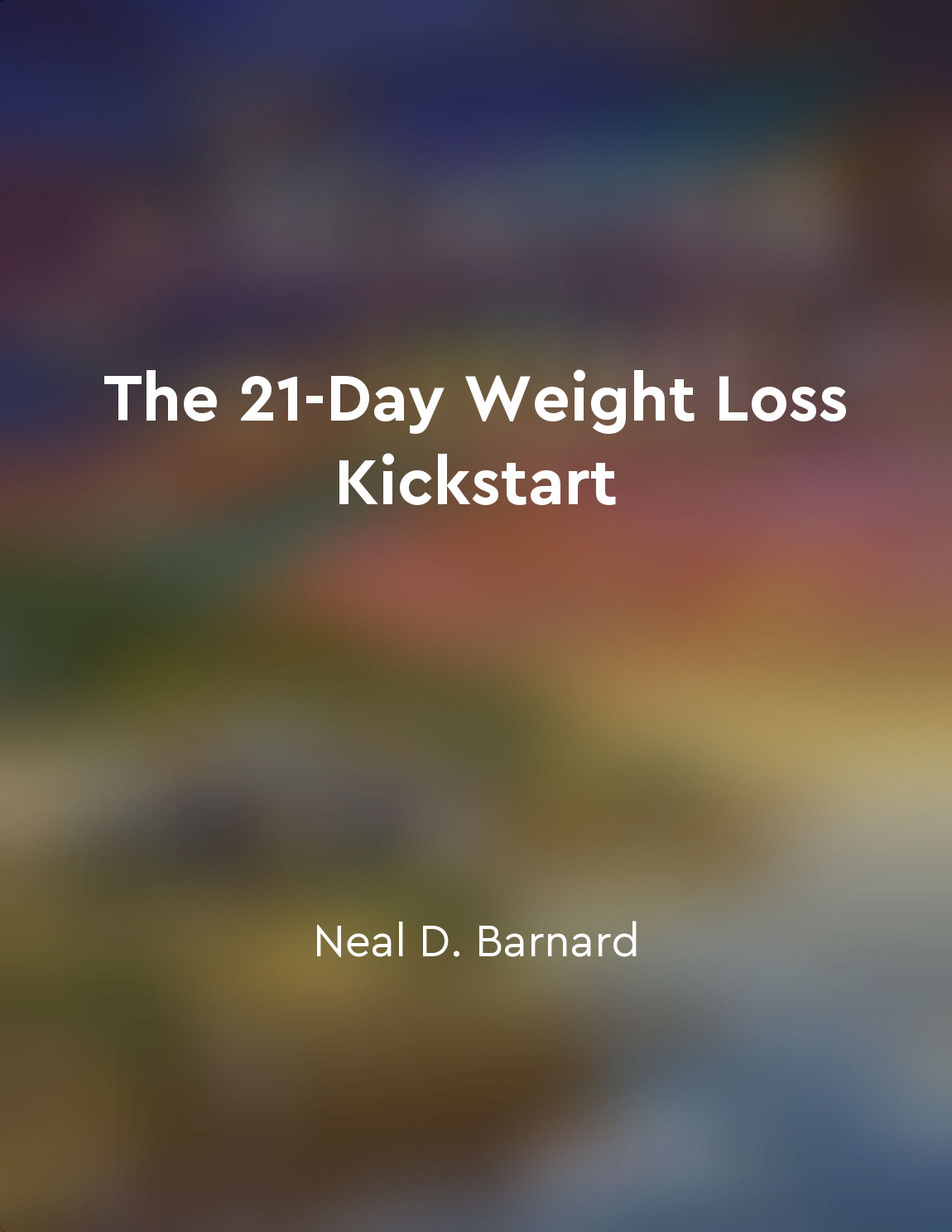Repetitive eating becomes a learned response from "summary" of The End of Overeating by David A. Kessler
When we repeatedly engage in eating certain foods, our brains form strong connections that link specific cues with the anticipation of reward. This process is known as associative conditioning, and it is what ultimately leads to overeating. As we continue to consume highly palatable foods rich in sugar, fat, and salt, our brains learn to associate these foods with pleasure, prompting us to seek them out whenever we encounter similar cues in our environment. Over time, this learned response becomes deeply ingrained in our brains, driving us to engage in repetitive eating behaviors even when we are not hungry. We may find ourselves reaching for certain foods automatically, without even being consciously aware of why we are doing so. This automaticity is a key characteristic of learned responses, as our brains have essentially been rewired to prioritize the consumption of these rewarding foods. The m...Similar Posts

Regular exercise complements a healthy eating plan
Regular exercise is a crucial component of a healthy lifestyle. It not only helps you maintain a healthy weight but also has nu...
Habit loops can be optimized for efficiency and effectiveness
Efficiency and effectiveness are key components of habit loops that can be intentionally optimized for better outcomes. By focu...
Habits are not fixed and can be modified over time
Habits are not fixed and can be modified over time. This is a key concept that Charles Duhigg explores in "The Power of Habit."...
Take time to connect with nature for grounding
Connecting with nature is essential for grounding ourselves in the midst of the chaos of daily life. In our modern, fast-paced ...
Whole foods provide essential vitamins and minerals
Whole foods, such as fruits, vegetables, whole grains, and legumes, are packed with essential vitamins and minerals that our bo...
The benefits of growing our own food
Growing our own food offers a multitude of benefits that are both practical and profound. One of the most obvious advantages is...
Embrace healthy fats
Healthy fats are your metabolism's best friend. They help keep your hormones in balance, boost your brain function, and provide...

Choose nutrientdense foods over empty calories
When it comes to nourishing your body, not all foods are created equal. Nutrient-dense foods are those that provide a high amou...

Establishing healthy habits is key to longterm weight loss success
Developing healthy habits is crucial for achieving lasting success in weight loss. The key lies in creating a sustainable routi...

Our decisions are influenced by relativity
The concept of how our decisions are influenced by relativity is a fascinating one. It suggests that our judgments are not made...
